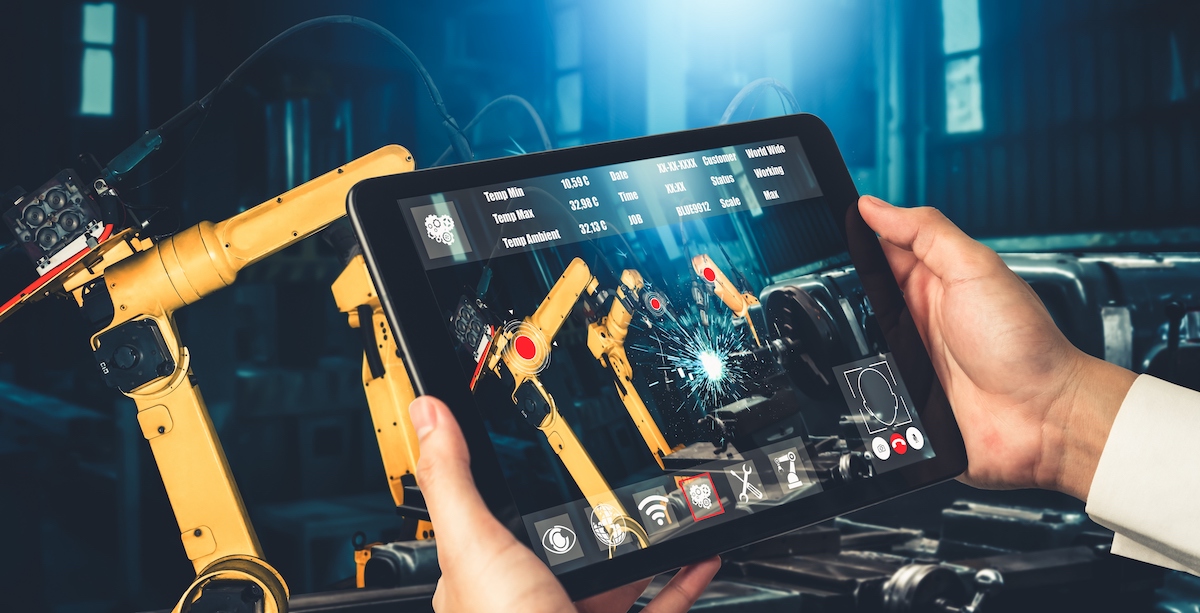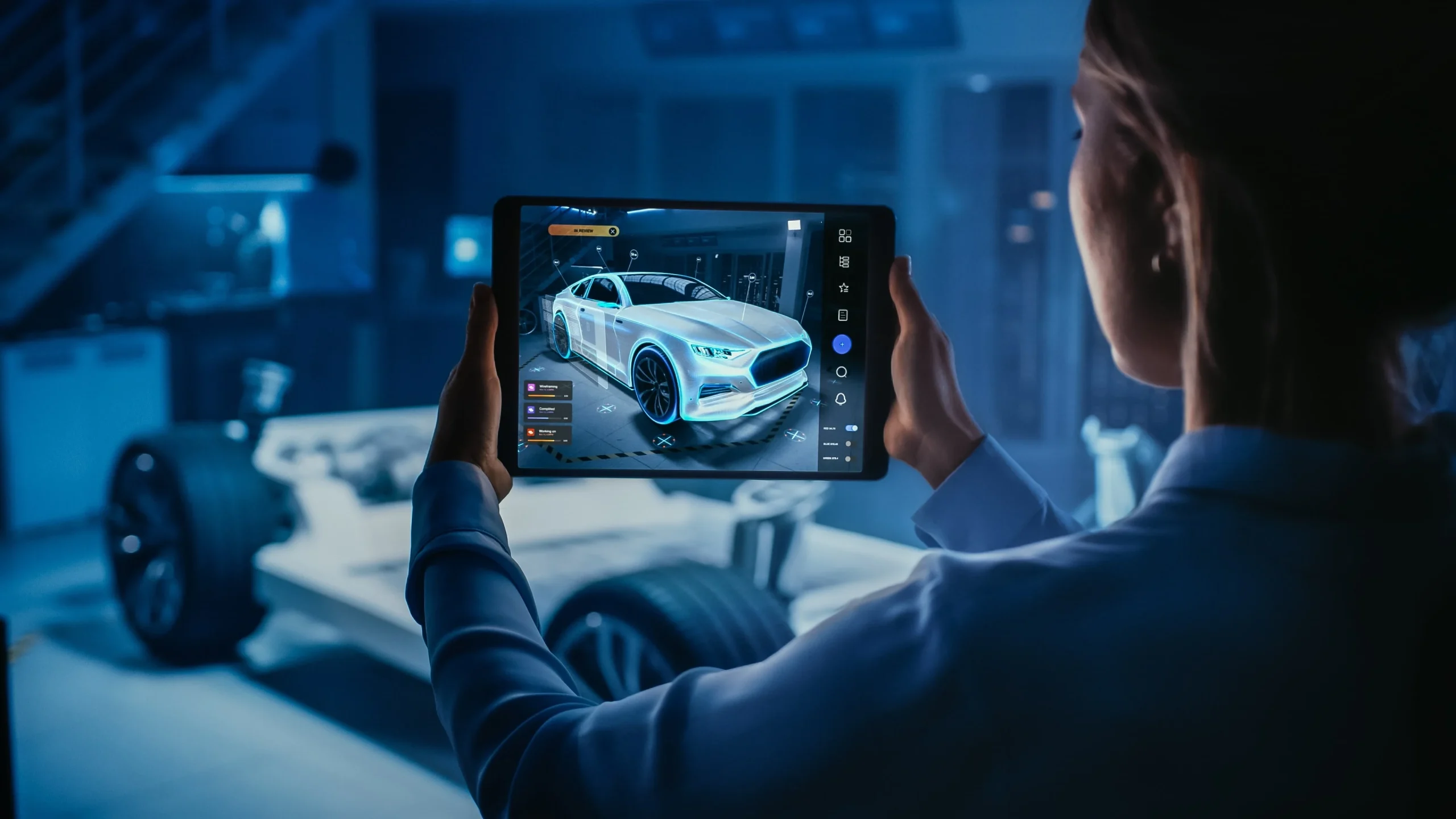Augmented Reality (AR) technology is transforming the automotive industry, delivering a range of advantages that enhance operational performance. These include improved manufacturing accuracy, reduced error rates, faster production timelines, more accessible data, faster skill acquisition, heightened operator confidence, and ultimately, greater customer satisfaction.
In the automotive sector, renowned for its constant drive toward precision and efficiency, the pursuit of better manufacturing processes and higher product quality is ongoing. AR has emerged as a groundbreaking tool that redefines traditional manufacturing methods. This article explores how AR is reshaping the automotive industry and fostering innovations that drive advancements in production and quality.
AR’s Impact on Manufacturing Precision in the Automotive Industry
The automotive industry faces numerous challenges, each requiring careful attention and strategic solutions. High defect rates, a lack of traceability, and inadequate documentation create significant obstacles to quality control. The complexities of supply chain management can also lead to delays and logistical disruptions. Moreover, issues like high worker turnover and lengthy onboarding processes complicate workforce management. These challenges highlight the dynamic nature of the automotive sector and underscore the need for proactive innovation to remain competitive.

Real-World Applications of AR in Automotive Manufacturing
Augmented Reality is transforming automotive production by providing innovative solutions to various manufacturing challenges. Some key AR use cases include:
Incoming Inspection of Jigs & Fixtures: AR assists operators in inspecting tooling received from suppliers. Using tablets and AR-based instructions, operators verify the conformity of these tools before they are introduced into the production line.
Assembly Assistance: In the assembly of components such as brackets and fixing elements on truck, train, or bus frames, AR projects precise positioning references directly onto the structure. This ensures operators can follow the assembly process with greater accuracy.
Harnesses & Cables Positioning: AR helps guide the placement of cables and harnesses by projecting their paths, minimizing errors in electrical installations. This is a time-saving alternative to traditional methods like static laser solutions.
Quality Inspection: AR is utilized for inspecting bodies in white or truck cabins, where operators check the presence and conformity of essential components like brackets, bolts, and welding points. This ensures vehicle integrity.
Paint Operations Assistance: AR technology helps project painting lines onto vehicles such as trains, trucks, and buses, ensuring consistent, high-quality paint applications every time.
These applications illustrate how AR is streamlining the automotive manufacturing process, improving both productivity and quality control.
Key Advantages of AR in the Automotive Industry
The integration of AR into automotive manufacturing provides several benefits, including:
Significant Reduction in Errors: AR guides operators with precise instructions and interactive support, minimizing human error during assembly and inspection. This leads to better product quality and fewer defects.
Enhanced Efficiency in Quality Control: AR overlays digital checkpoints and quality standards onto physical components, speeding up inspections and ensuring compliance with industry standards.
Cost Savings: By improving the accuracy of manufacturing processes, AR reduces the need for rework and material waste. This results in significant cost savings, as fewer mistakes are made, and inspection times are shortened to prevent delays.
Improved Operator Comfort: AR creates a more intuitive and hands-free work environment for operators, reducing cognitive load and physical strain, which increases job satisfaction and productivity.
Faster Onboarding of New Employees: The automated guidance offered by AR processes accelerates the training of new workers, addressing the challenges posed by high employee turnover.
DELMIA’s Role in Advancing AR in the Automotive Industry
DELMIA, with its Augmented Experience solution, plays a pivotal role in integrating AR into the manufacturing and quality control processes of the automotive and heavy vehicle industries. Through AR, DELMIA helps companies achieve higher productivity, enhanced product quality, and improved operator comfort. The DELMIA Augmented Experience solution is a crucial tool for companies looking to overcome manufacturing challenges and stay competitive.

